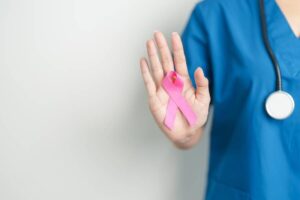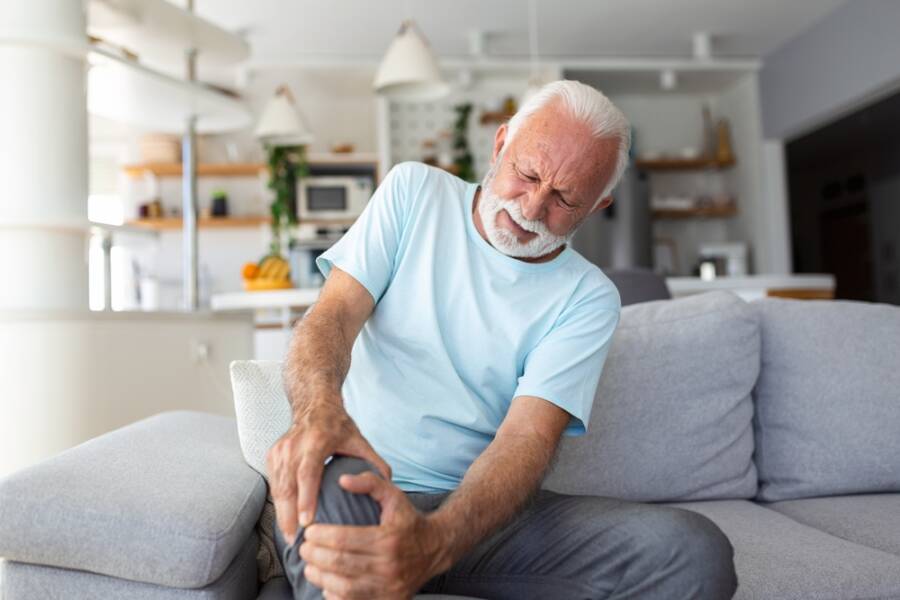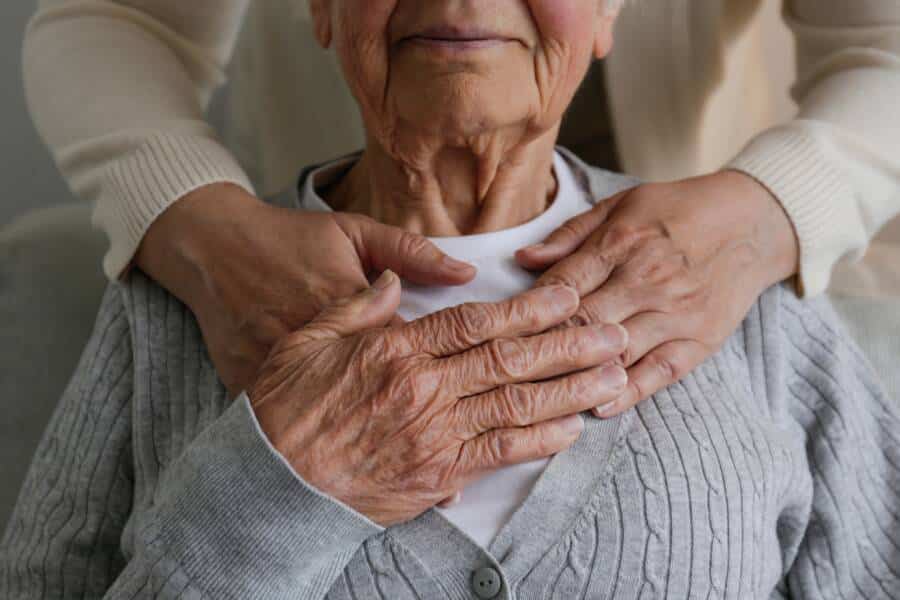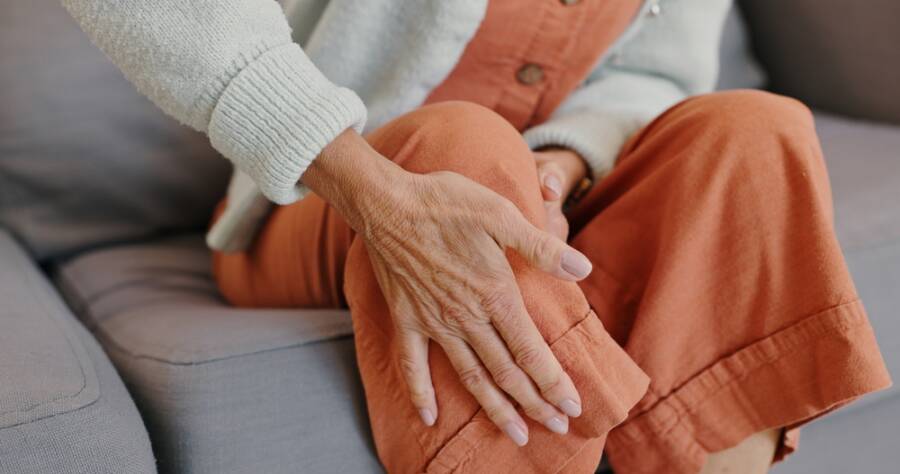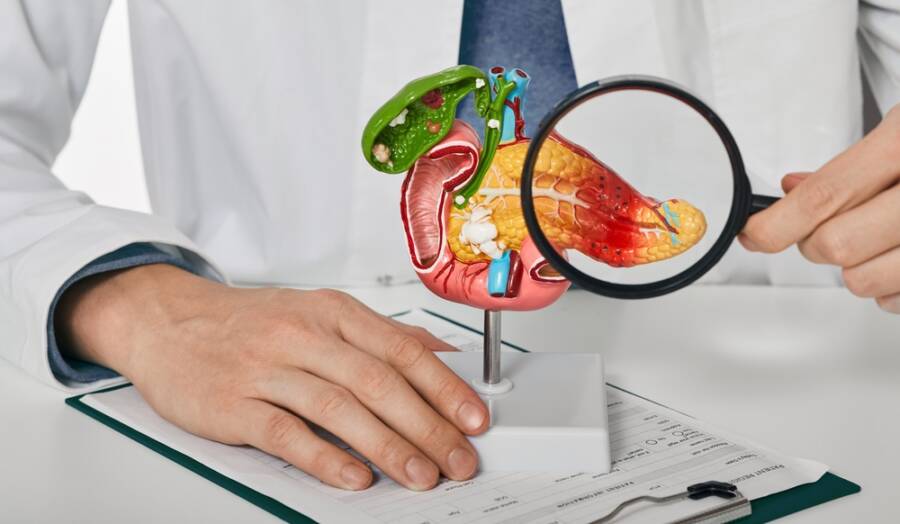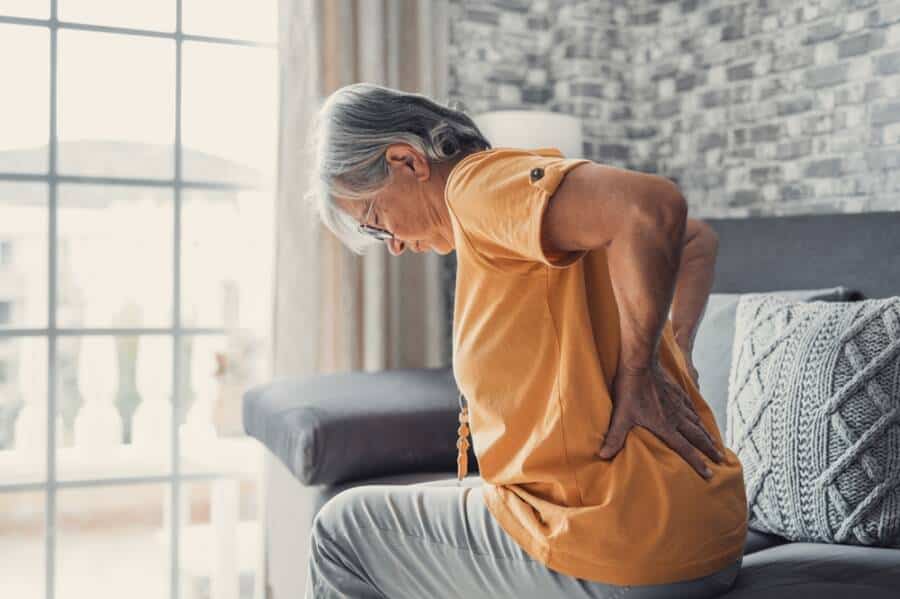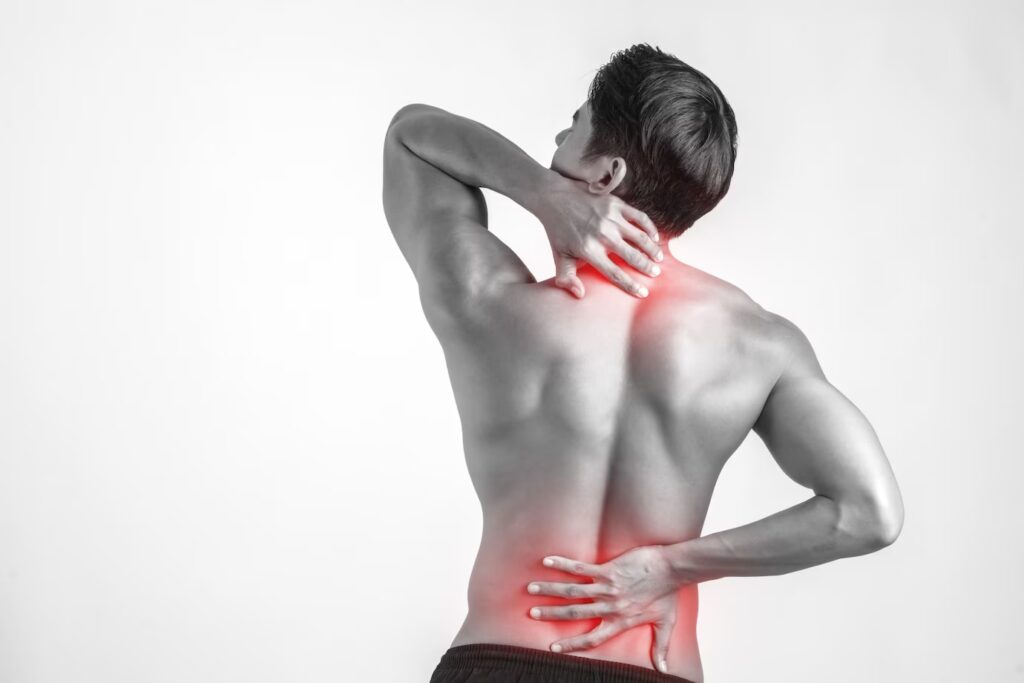Is your stomach more upset lately? We bet you blame it on the taco night… If your stomach is constantly aching and burning, it may be more than just your run-of-the-mill indigestion. You might be dealing with gastritis. Gastritis is actually a term used to describe the inflammation of the lining of the stomach. When left untreated, it can easily lead to ulcers.
There are two types of gastritis. Acute gastritis (the one that appears out of nowhere) and chronic gastritis (the one that develops in time). So, if you are more prone to stomach issues, a gastroenterologist, Taruna Bhatia, MD, says it’s best to make a gastro appointment.
Until then, read on to discover the subtle signs of gastritis because you may be one of the 30 percent of Americans who have it.
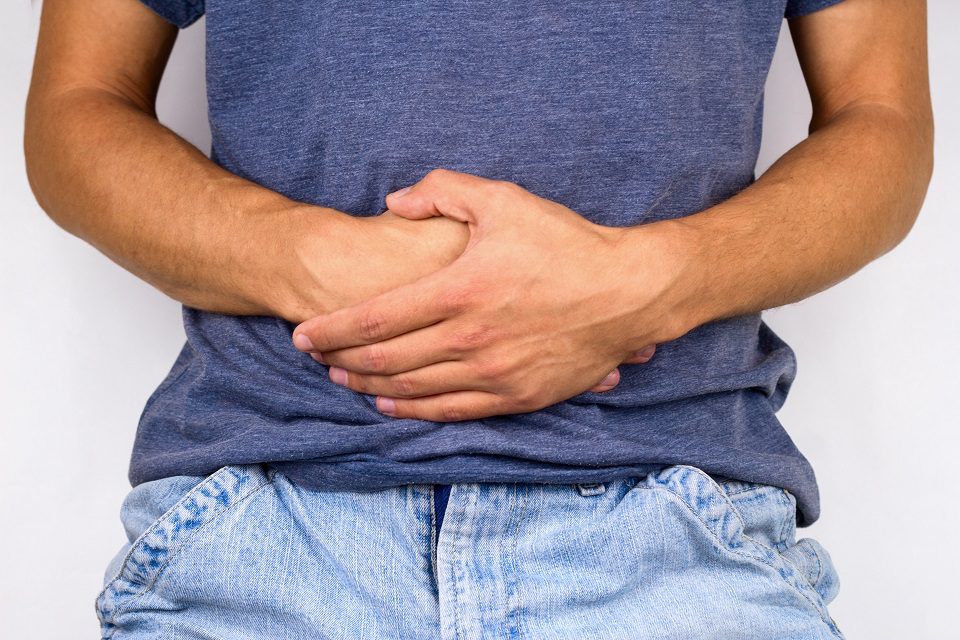
1. You feel bloated all the time
While, indeed, there are many foods that can make you feel bloated such as beans, it’s not normal to feel this way after eating a bowl of fresh salad. If it happens quite often, you should definitely get in touch with a gastroenterologist.
Dyspepsia and basic indigestion can cause bloating, too, so don’t panic. David Greenwald, MD, professor of medicine and gastroenterology, says that dyspepsia is completely normal, and most of us experience it from time to time. However, when compared to gastritis, dyspepsia doesn’t have abdominal pain, frequent nausea, or a burning sensation as symptoms.
People with gastritis may experience loss of appetite, too. In severe cases, gastritis can lead to blood in the stool. If you’re only bloated, it could be just dyspepsia, but it’s best to check it with your doctor.
2. You burp a lot
According to a gastroenterologist, Elena A. Ivanina, DO, an infection caused by Helicobacter pylori can easily lead to gastritis. This infection releases toxins in your stomach that damage it. That’s why people infected with the bacteria Helicobacter pylori burp a lot.
Sadly, most people ignore this symptom. A study published in the Journal Gastroenterology discovered that H. pylori infect more than half of the entire world’s population. What’s even more concerning is the fact that H. pylori can cause cancer.
However, just like bloating, if your burping is caused by gastritis, it should be accompanied by additional symptoms like abdominal pain or heartburn.
3. You feel full, even when you’ve eaten a small meal
Another symptom of H. pylori is fullness. Even after a small meal, people with H. pylori gastritis feel full. This happens because the stomach lining is irritated, leading to abnormal function. However, ‘early satiety’ can also be the result of an ulcer.
Therefore, the inability to consume a big-sized meal should concern you. If you think that you’re not eating as much as you used to, contact your doctor immediately. It may benefit your waistline, but it’s not a reason to be happy but quite the opposite.
4. You deal with a vitamin B12 deficiency
If you’re wondering what a vitamin B12 deficiency has to do with gastritis, note that H. pylori infection can restrain your body’s natural ability to break down the protein needed to get B12 from the foods you eat.
Vitamin B12 is crucial for maintaining good energy levels. Dairy, eggs, fish, and poultry are the best sources of vitamin B12, but if you have an H. pylori infection, it doesn’t matter how many B12 sources you consume.
So, when you left an H. pylori infection untreated, and you also struggle with a vitamin B12 deficiency, you are more likely to develop a chronic inflammatory disease called autoimmune gastritis. Any coordination issues or loss of balance indicate a vitamin B12 deficiency.
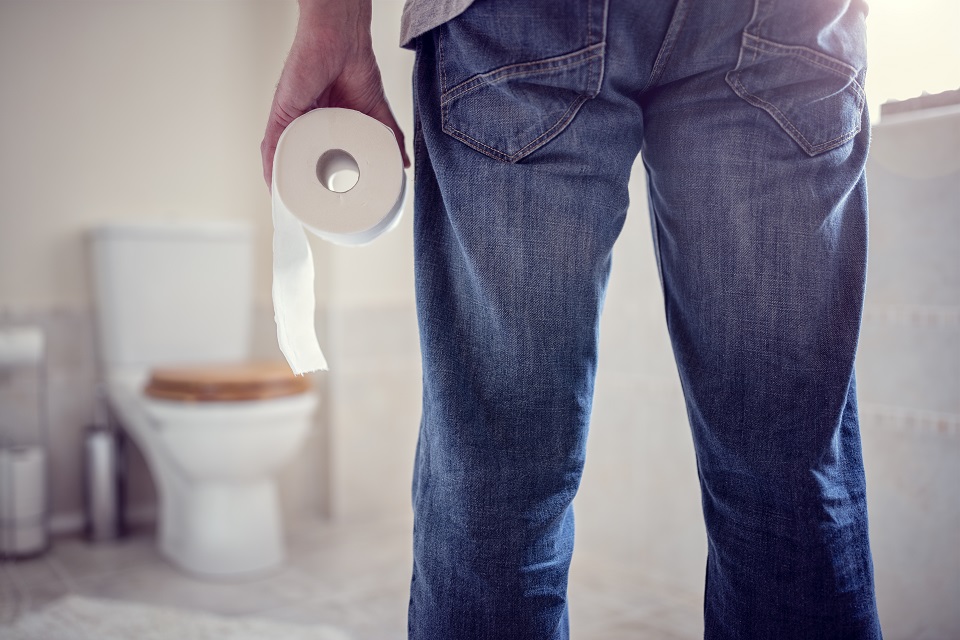
5. You have inflammatory bowel disease
Those who deal with inflammatory bowel disease like Crohn’s are more prone to develop gastritis. According to Dr. Ivanina, when you struggle with Crohn’s disease, not only your stomach is affected but your entire GI tract.
In general, Crohn’s disease appears at the end of the small bowel and the start of your colon; however, it can affect your body anywhere from the anus to the mouth. People with Crohn’s disease often experience abdominal cramping, chronic diarrhea, constipation, and even rectal bleeding.
As soon as you spot any of these symptoms, don’t hesitate, call your doctor!
6. You are losing weight
When you’re on a weight-loss diet, it’s normal and expected to lose some weight, but if you’re losing weight for apparently no reason, visit a gastroenterologist. Doctors suggest that you can easily contract H. pylori by consuming contaminated foods. The same applies to contaminated water, too.
Once H. pylori have entered your body, due to the discomfort provoked, most people can’t eat; therefore, they lose weight. The scale doesn’t lie… So if you notice any changes in your weight, maybe it’s time to contact your doctor. It’s important to treat this type of infection as soon as possible to minimize the consequences.
Generally, taking antibiotics will most likely get you rid of H. pylori. Therefore your gastritis will be long gone.
7. You feel nauseous
Here’s another thing caused by H. pylori infection: nausea. Dr. Bhatia explains that nausea caused by this infection starts in the movement of bile. Most doctors call it bile reflux which is basically another type of gastritis.
However, don’t rush into making any assumptions. Nausea is a common symptom of numerous health conditions, including indigestion. Instead of thinking that you may have gastritis due to an H. pylori infection, try to remember if you’ve experienced other symptoms that are usually associated with H. pylori. If you can’t remember, a stool test can determine if you have H. pylori or not.
8. You drink a lot or take certain drugs
Just so you know, H. pylori infections are not actually the only way we develop gastritis. There’s a wide spectrum of culprits, alcohol and drug abuse included. Dr. Greenwald notes that large amounts of alcohol usually irritate the lining of the stomach, leading to gastritis.
Most people associate alcohol intake with stomach aches and heartburn; however, you could end up with an ulcer if you have an issue with alcohol consumption. Obviously, the best way to prevent ulcer development is to stop consuming alcohol.
The recommended intake for alcohol is no more than two glasses per day for men and no more than one glass for women. So, are you following the rules?
9. You take way too many anti-inflammatory drugs
Anti-inflammatory drugs are something we should all have in the bathroom cabinet, but if you’re taking way too many pain meds, your stomach will face the consequences. When used excessively, pain main like Advil and Aleve can irritate the lining of the stomach, leading this way to gastritis.
A recent study pointed out that taking way too many nonsteroidal anti-inflammatory drugs (NSAIDs) can even lead to peptic ulcers, which are basically open sores that develop in both the upper part of the small intestine and the internal portion of the stomach lining.

10. You smoke cigarettes
We all know that smoking is a nasty habit that can also lead to respiratory-related illnesses and, of course, dread cancer, but how bad is it when it comes to our stomach? According to the Centers for Disease Control and Prevention over 16 million Americans have a sort of smoking-related health issue.
Smoking cigarettes maximizes your chances of developing gastritis. Wondering why? Because it damages your stomach lining in several ways. Smoking tobacco minimizes the protective mucus production, leading to stomach inflammation. On top of that, it can also delay the blood supply to the stomach lining, minimizing the healing process from inflammation.
11. You have anemia
Those who are over 40 and tend to struggle with indigestion and anemia, should see a doctor right away. Another thing caused by gastritis is anemia. Dr. Bhatia recommends getting an upper-gastrointestinal endoscopy to see if the anemia is caused by erosive gastritis.
This is actually the rarest type of gastritis you could possibly have. It often leads to ulcers and people usually get diagnosed when they spot blood in the stool. So, if, you’re also experiencing weakness, loss of appetite, vomiting, nausea, and a burning sensation in the stomach, go visit a gastroenterologist immediately.
By the way, here’s a recipe book that can inspire you to cook healthy foods that can help you stop acid reflux, nausea, and stomach pain.
You may also want to read 20 Reasons Why You Just Can’t Lose Weight Yet.







